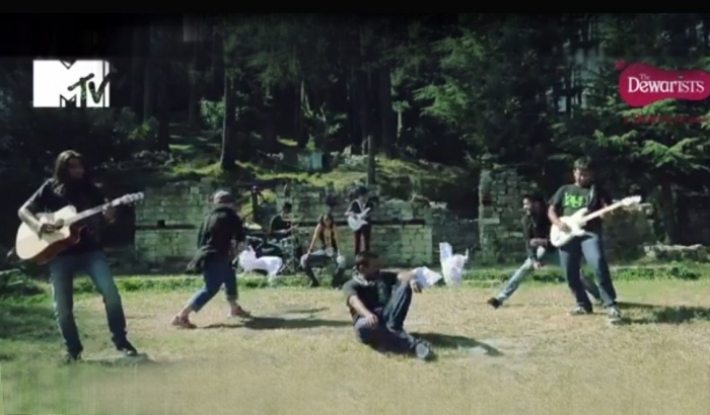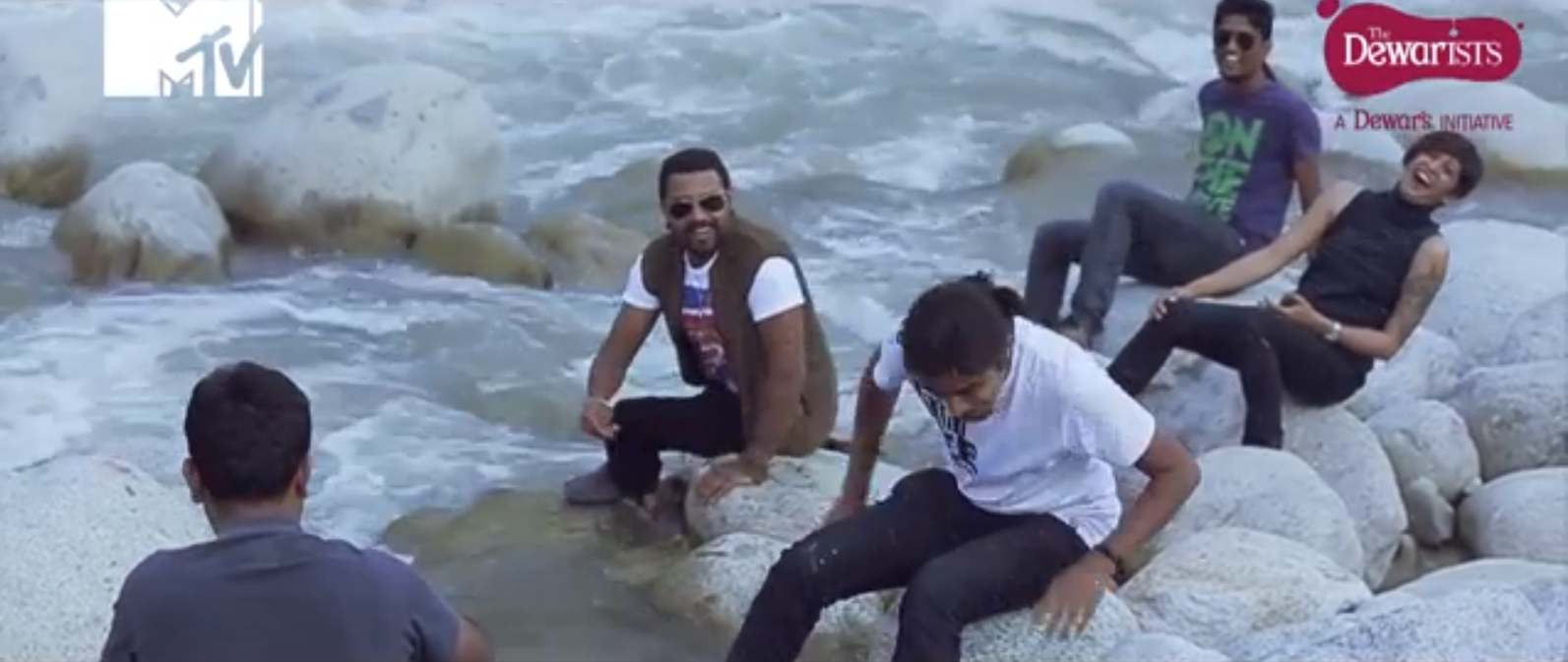

(All screen grabs taken from here)
1. In the very first meeting between Maneesh Verma, the main man in Actors’ Cult, and Lagori, the band directs the discussion towards writing a song about Manali and the location and how it affects them. It’s a fairly ho-hum idea that’s thankfully written off almost immediately by Verma, who instead suggests a song based around the cult of the goddess Hadimba, who’s supposed to reside in Manali, where the episode is being shot. We were taught in journalism school that your first creative idea is almost always shit – it’s predictable and easy to think up and you haven’t challenged yourself enough – and you should move on to the next one as quickly as possible. That’s what these guys did on the episode.

2. In that same discussion, the band tells Verma that they already have the skeletal structure of a song ready, with guitar and vocal melodies prepared, and then they play a little segment off it. This songwriting happened off-screen, before the episode even began – the band wrote that part while on the way to Manali. That’s cheating, man.
3. A glorious kind of tragedy is attached to theatre in India – street theatre particularly. There’s this perception – true or otherwise – that theatre is this lost, pure art that’s never been appreciated for what it stands for. The integrity, the honesty, and the sheer skill that goes into most theatre productions, as well as the heart, is never quite in proportion to the response, the fame, the success. They work for no money because they believe in their art, and then, presumable, they become jaded, grow beards (the men, at least) and hang around at Prithvi or Triveni and drink chai – it’s an age old stereotype, isn’t it? So it’s great to see Actors’ Cult in this instance get its day in the sun by getting featured on a commercial television show.
4. Maneesh Verma gets a fairly long monologue around a fire talking about the group and art and theatre and stuff. It’s brilliant – the stuff he talks about. He speaks intelligently, makes a lot of sense, and there’s also maybe this inherent sense of bitterness or resentment – well, maybe not bitterness; maybe it’s that yearning for better things around you; that yearning for eternal creative and societal harmony – that practically every artist holds and nurtures and channelizes while creating art. A distant sense of melancholy filters through while he speaks, which is contrasted very nicely with the more objectively jovial tone that the Lagori band members adopt.

5. To make a crude generalization, theatre people talk a lot, and they talk very loudly. They’re very free and always have something fun to say. There’s a cultivated spontaneity to their actions and words and they’re always very colourful and, to throw an oft-used cliché, vibrant. That naturally makes for great TV.
6. The first episode of the season was also shot in Manali, and it had this ethereal, dreamy appearance. Here, visually, the aforementioned vibrancy is also reflected in how the episode is shot – that otherworldly haze that surrounded the first episode is replaced by an approach that’s intentionally less fluid perhaps – because this episode projects a very different feel – and in sync with the action on screen.
7. It’s not an especially new or profound observation, but on non-fiction television, people have a strange way of nodding during conversation. It’s very prominent in this episode since there are just so many people and so much talking, so through all the spoken sequences, you can see the people nodding their heads in a very self-conscious, stilted, awkward, almost sheepish manner while someone else talks. It’s not something exclusive to The Dewarists – the phenomenon is there in almost every TV show featuring people who aren’t used to being on TV. And, what’s more, that self-conscious tic pops up only when they’re listening to someone speak, not when they’re the ones talking, simply because they’re usually in a flow while speaking and forgot for a few moments that there’s a camera fixated on their faces capturing every single expression of theirs. Oh, the camera.

8. The vocalist of Lagori looks a bit like a younger Raghu Dixit.
9. The song itself is this melodic, folksy rendition centred around Hadimba, which is its name and its chorus too. That style of music is not something I’m that into, but I would have liked to see a lot more of the recording and arranging process with the band in the studio. The video looks a little like a black metal video in the forest, with some symbolic acting in it, and there’s a nice touch towards the end as all the band members and members of Actors’ Cult do a P2C with a little saying about peace, love, happiness, nature, future, and so forth.

10. As the show ends, the final montage has all the people who were involved in the collaboration standing around a table. Whiskey is being poured into glasses, and then they all do a little ‘cheers’ routine and drink the whiskey. How clever. We all know the show is sponsored by this particular whiskey (its name is in the name of the show itself), so why get all blatantly surrogate and kitschy? Come on, suits.
Watch The Dewarists - Season Three, Episode Four - 'Hadimba' below:
Read more reviews here


Leave a comment